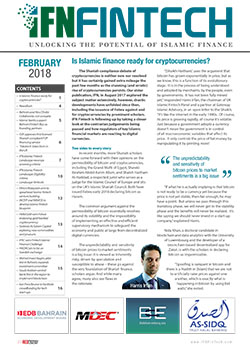INDONESIA: Shariah compliant financing for SMEs in Indonesia may be more easily available as one Indonesian fintech start-up is coming to market with a digital platform streamlining the Islamic financing process for small and medium businesses, a segment which accounts for about 60% of the nation's GDP.
ALAMI Teknologi Sharia, founded by two former career bankers, has rolled out an online platform linking keen business fund-seekers to Islamic financial institutions in Indonesia, hoping to boost the takeup of Islamic banking products in a country where Shariah banking assets account for less than 10% of the banking industry, despite having over 220 million of its population identifying as Muslims.
"Collaboration between Islamic banks and fintech companies will contribute significantly in some aspects of the economy, in addition to rejuvenating the face of the Islamic financial industry," shared Dima Djani, CEO and founder of ALAMI.
At a time when banking services are increasingly being disrupted by new smaller, but more agile, technology companies, Dima, who was previously attached to banks including Citi and Societe Generale in Jakarta and Hong Kong, believes that Islamic banks can take advantage of the niche services provided by fintech players.
Indonesian authorities recognize the changing financial dynamics and are putting in place infrastructure to better navigate the landscape and regulating these new entities while encouraging innovation: the central bank has created a fintech sandbox while the Financial Services Authority issued fintech regulations and is working on crowdfunding rules.
While still small, Islamic fintech is a promising sector in Indonesia, given the Republic's national Shariah finance ambition. Islamic crowdfunding and peer-to-peer financing are the most active verticals in Indonesia with the likes of Ethis Indonesia and Investree serving the Muslim population; ALAMI, currently available to a limited audience before its full launch, is the country's first aggregator for Shariah compliant financial services.
"We hope that through innovation and technology contributed by ALAMI, the industry can be rejuvenated. We also aspired to develop [a] Shariah-based sharing economy ecosystem in Indonesia now, and abroad next," Dima said. |














No comments:
Post a Comment
Note: Only a member of this blog may post a comment.